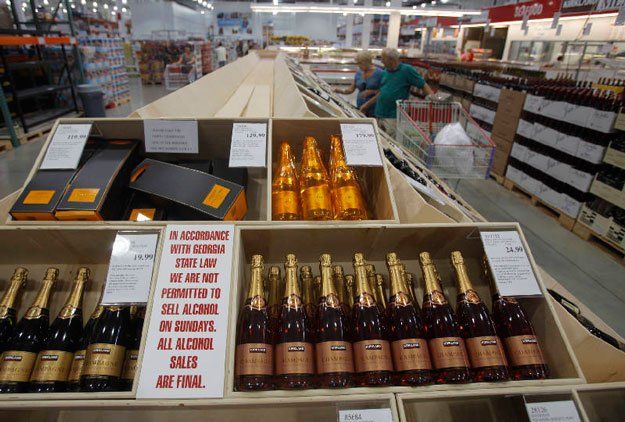Alcohol Retail Monopolies
Alcohol retail monopolies, also known as state-controlled or government-operated liquor store systems, represent a regulatory approach where the sale of alcoholic beverages is exclusively managed and overseen by the government or a state-sanctioned agency, rather than being open to private businesses. These systems aim to exercise strict control over the distribution and sale of alcohol, primarily for reasons related to revenue generation, public health, and social responsibility.
Alcohol Retail Monopolies: Navigating the Complex Landscape
In the world of alcohol sales, the concept of monopolies is a topic that triggers mixed feelings and robust debates. This article will delve into the intricate web of alcohol retail monopolies, exploring their pros and cons, impact on pricing and accessibility, role in public health and safety, economic implications, and much more. So, grab a glass of your favorite beverage, and let’s uncork the secrets of alcohol retail monopolies.For more information visit our page: dailydiscoverie.com
Pros and Cons of Alcohol Retail Monopolies

Benefits of State-Controlled Alcohol Sales
When a state monopolizes alcohol retail, it gains better control over sales, which can lead to reduced underage drinking and overconsumption. Additionally, it often results in higher government revenue, which can be allocated to public services.
Drawbacks of Alcohol Retail Monopolies
On the flip side, monopolies can limit competition, potentially leading to higher prices and limited product variety. Critics argue that this can stifle innovation and result in reduced customer satisfaction.
Impact on Pricing and Accessibility
How Do Monopolies Affect Alcohol Prices?
In monopoly states, alcohol prices can be either higher or lower than in open markets, depending on various factors such as taxes, distribution costs, and the state’s pricing policies.
Accessibility Challenges for Consumers
Monopolies might restrict the convenience of purchasing alcohol. Limited store locations, strict operating hours, and the absence of private sellers can inconvenience consumers.
Control and Regulation
Maintaining Control Over Alcohol Sales
Monopolies ensure strict adherence to alcohol sales regulations. This can help control the distribution of alcohol and mitigate social issues related to its misuse.
Regulatory Challenges and Solutions
Maintaining an effective regulatory framework within monopolies can be challenging. However, innovative solutions, such as technology-driven monitoring, can improve efficiency.
Public Health and Safety
Monopolies and Their Role in Reducing Alcohol-Related Harms
State-controlled alcohol sales can lead to better enforcement of public health policies, reducing alcohol-related issues like DUIs and underage drinking.
Enforcement and Oversight of Public Health Policies
Ensuring that policies are effectively enforced and reviewed regularly is critical to the success of alcohol retail monopolies.
Economic Implications
Economic Benefits of Alcohol Retail Monopolies
Monopolies often generate substantial revenue for governments. This income can be directed towards public health, education, and other essential services.
Potential Negative Effects on Local Businesses
On the downside, alcohol retail monopolies may negatively impact local businesses, including liquor stores and craft breweries.
Social and Cultural Perspectives
How Monopolies Impact Drinking Culture
Alcohol monopolies can influence societal drinking habits and norms. Their role in shaping culture is a subject of interest.
Community Opinions on State-Controlled Sales
Gauging public sentiment about alcohol retail monopolies is vital to understanding their acceptance and effectiveness.
The Consumer Experience

What to Expect When Purchasing Alcohol in the Monopoly States
Consumers often encounter unique experiences when buying alcohol in monopoly states, from limited product choices to knowledgeable staff.
Consumer Feedback and Satisfaction
Collecting feedback from consumers can help improve the alcohol purchasing experience.
Discussing Privatization and Its Potential Benefits
Privatization of alcohol sales is an alternative model, with its own set of advantages and drawbacks.
Mixed Models for Alcohol Sales Regulation
Some states adopt hybrid models, combining elements of both monopolies and privatization.
Future Trends and Innovations
In a rapidly changing world, alcohol retail monopolies must adapt to stay relevant and efficient.
Monopolies need to respond to market dynamics and consumer preferences to remain competitive.
Balancing Interests
Finding Common Ground Between Consumers, Businesses, and Regulators
Balancing the interests of all stakeholders is essential for a harmonious alcohol retail system.
Achieving a Win-Win Situation
Can monopolies find a way to provide consumers with what they want while meeting regulatory goals?
Conclusion
In conclusion, alcohol retail monopolies are a complex and multifaceted topic. They have their advantages in terms of control, revenue generation, and public health, but they also come with challenges such as limited competition and potential negative effects on local businesses. The future of alcohol retail regulation lies in finding a balance that serves the interests of all stakeholders while adapting to evolving market dynamics.
Faqs
What is an alcohol retail monopoly?
An alcohol retail monopoly is a system in which the government or a government-controlled entity has a monopoly on the retail sale of alcoholic beverages. This means they have exclusive control over the distribution and sale of alcohol within a specific jurisdiction.
How do alcohol retail monopolies work?
in a monopoly system, the government or its designated agency is the sole entity authorized to sell alcohol. This can be through government-owned stores, agencies, or outlets, and it often involves strict regulations on who can purchase alcohol and when it can be sold.
What are the goals of alcohol retail monopolies?
Alcohol retail monopolies are typically established with several goals in mind, including promoting responsible drinking, generating revenue for the government, and regulating the sale and consumption of alcoholic beverages to minimize social problems related to alcohol.
What are the advantages of alcohol retail monopolies?
Some potential advantages of alcohol retail monopolies include better control over alcohol sales, revenue generation for the government, and the ability to implement public health and safety measures more effectively.
What are the disadvantages of alcohol retail monopolies?
Critics argue that alcohol retail monopolies can limit consumer choice, result in higher prices, reduce competition, and sometimes lead to inefficiencies in the market. They may also create barriers to entry for smaller producers and retailers.










